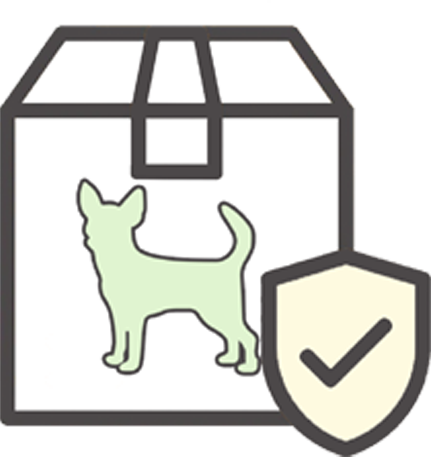The Importance of Chewing for Dogs
Updated On: Friday, August 8, 2025 07:34:18 AM America/Los_Angeles
Sometimes cute, sometimes annoying, chewing is a familiar issue for dog pawrents everywhere. From teething puppies to bored doggos, it’s likely that you’ll be dealing with your dog’s desire to chomp throughout their life. Because chewing is often seen as inappropriate or destructive, dog owners often overlook why they chew. However, chewing is an important part of canine development and behaviors and shouldn’t always be discouraged.
Photo by Ayla Verschueren
The reasons dogs chew are varied, but there are ways to manage chewing to make it less frustrating for you but still satisfying for your pup. Below are some common reasons that dogs chew and how to provide appropriate alternatives for your chompy pooch.
Teething When Young
Along with potty training and leash training, teething is just one of those things that can’t be avoided when dealing with young puppies. Chewing when teething is important for all mammals, and dogs are no exception. Not only does chewing help relieve any physical discomforts associated with chewing, puppies are also starting to practice an important skill when chewing -- learning to explore with their mouths (more on that in a bit). For teething related chewing, select a smaller toy that they can easily manage and won’t fall apart easily.
Exploration
Dogs learn about the world through smells, sounds, and tastes. Chewing is one way that canines explore their environment. If you find your furry one gnawing on a random object like a bottle cap, chances are they’re just as curious as you are about what chewing it can offer.
Habit
Chewing behavior may be unintentionally encouraged by providing a chew toy or treat as a reward during training such as after properly using the pee pad. There’s nothing inherently wrong with this, but sometimes this can defeat the purpose of training when dogs get overly eager and discontinue the behavior properly before asking for the treat. One option is to offer the toy but away from the pet potty. Instead of visibly holding the chew toy while your dog takes care of business, offer it in a different room only after they’ve successfully finished going on the wee wee pad.
Boredom
Some bored pups prefer chewing when bored, because it provides a lot of stimulation. Smells, tastes, and sounds all come into play. Unfortunately, this can turn into destructive behavior if your dog is lacking mental stimulation. A treat ball or toy kills two birds with one stone in this situation. An interactive chew toy both encourages engaging in play and rewarding that behavior.
Self-soothing
Chewing can become a self-soothing behavior for some dogs, and this can show up in the form of tail, nail, paw chewing. Dogs may self-soothe when stressed, anxious, or even bored. Try a flavorful bully stick for the ultimate chewing distraction or offer a chew toy that can be used with calming treats.
Enjoyment
Some dogs simply love to chew and have chosen it as their favorite pastime! As mentioned, it’s a natural way canines explore the world and engage in play. While certain dogs love a good ol’ game of fetch, others prefer noshing on their favorite toy in bed. Just be sure to provide appropriate outlets for your pup’s age, size, and other needs or preferences.


